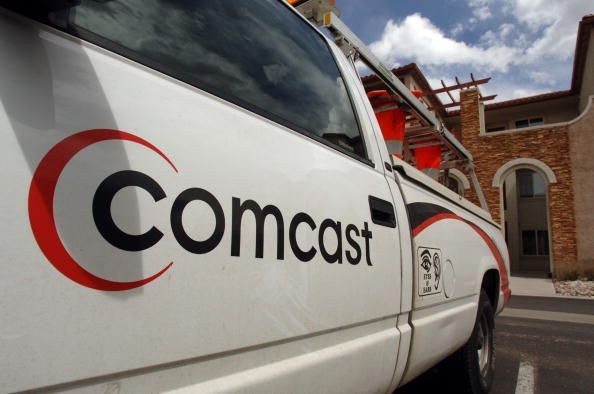What's Next For Comcast? After Failed TWC Merger, Cable Giant Faces Regulated, Cord-Cutting Future

Comcast is officially in a box. The Philadelphia cable and entertainment giant learned this week the limits being placed on it by the U.S. Department of Justice and Federal Communications Commission, and is preparing to formally drop its $45 billion bid for Time Warner Cable, multiple news reports say. The deal faced steep opposition from federal regulators concerned about giving one company too much control over the nation’s pipes and content.
“One of the things they would probably focus on is, ‘Would this merger have given Comcast too much of a gatekeeper power in terms of what ultimately makes it into consumers’ homes?’ ” said Allen Grunes, an antitrust lawyer who spent more than a decade at the DOJ and who represented parties opposed to the Comcast-TWC merger plan.
Abandoning the bid would end a 16-month process that would have put a single cable behemoth in control of 57 percent of the U.S. broadband market and 30 percent of its pay-TV homes. The apparent fizzling out of the Comcast-TWC merger comes as Americans are growing hungrier for high-speed Internet but are dropping video service at an increasing rate; meanwhile, TV networks such as HBO, CBS and, soon, Showtime are taking their offerings directly to consumers.
Comcast's Next Move
Now that Comcast’s footprint has reached the end of growth through mega deals, what’s next? Smaller cable deals are certainly a possibility, or perhaps a deal outside the industry. “Some have suggested that Comcast’s next move might be a bid for T-Mobile,” Craig Moffett, an analyst with MoffettNathanson, said in a research note Thursday. “But this, too, would likely be viewed in Washington as overly provocative.”
Without a deal, Comcast is left squeezing the margin out of its TV network assets and remaining video subscribers while hoping to drive its broadband business, which is still growing. Cord-cutters may be dropping video, but they need a robust wired broadband connection more than ever. The question is whether Comcast will be able to control pricing as a regulated utility under Title II, a provision of the Communications Act of 1934.
“There are certainly some opportunities for organic growth, but video is a mature service and broadband is getting more narrow,” said Ian Olgierson, an analyst at SNL Kagan.
Buying Time Warner Cable wouldn’t have fixed any of the structural problems Comcast is facing. Comcast already had the most leverage and market power in the pay-TV business; owning Time Warner Cable would have given it more economies of scale, but it wouldn’t have changed its essential business, which is mature.
Ironically, it is probably the No. 2 partner, Time Warner Cable, that becomes more active -- as an acquisitions target and a potential consolidator -- in the aftermath of the failed merger. Charter Communications is said to be interested in a bid, but that would likely face strenuous opposition from Time Warner Cable. Time Warner could make a play for its New York City-area neighbor Cablevision or for Bright House Networks, which would have gone to John Malone-controlled Charter if the merger had gone through.
Complicated Dynamics
The dynamics going forward get complicated. AT&T is in the midst of acquiring DirecTV, which would give the telco a national footprint for video, favorable content deals and the ability to bundle wireless with cable TV. Verizon has said it plans to take its FiOS service over-the-top via broadband, as well as an on-demand wireless version via its 4G LTE mobile network.
Meanwhile, traditional cable companies are starting to wean themselves off video. Verizon is challenging TV networks with its smaller “custom TV” bundles, and Cablevision started marketing a package specifically for cord-cutters that includes a high-speed broadband connection, an antenna to pull down over-the-air free broadcast signals, and for an additional $15, HBO’s Web-only service, HBO Now.
While Comcast had long argued that the merger was not anticompetitive because it wouldn't compete with TWC in any local markets, antitrust regulators also look at a merger’s potential to harm prices, affect quality or harm innovation.
It is that kind of innovation -- in the form of Netflix, Apple’s coming TV service, SlingTV and others -- that presents the biggest challenge to Comcast, which like most other cable giants has for years had limited competition for video service, and often no competition in broadband, in local markets.
“In any larger merger there are a lot of pieces that are potentially troubling,” Grunes said. “One of those pieces here clearly was broadband, and the concern that the DOJ expressed back in the Comcast-NBCU deal about innovation -- specifically the rise of over-the-top services and the issue of whether a company like Comcast had some incentive or ability to delay or hinder this new form of competition.”
© Copyright IBTimes 2024. All rights reserved.












